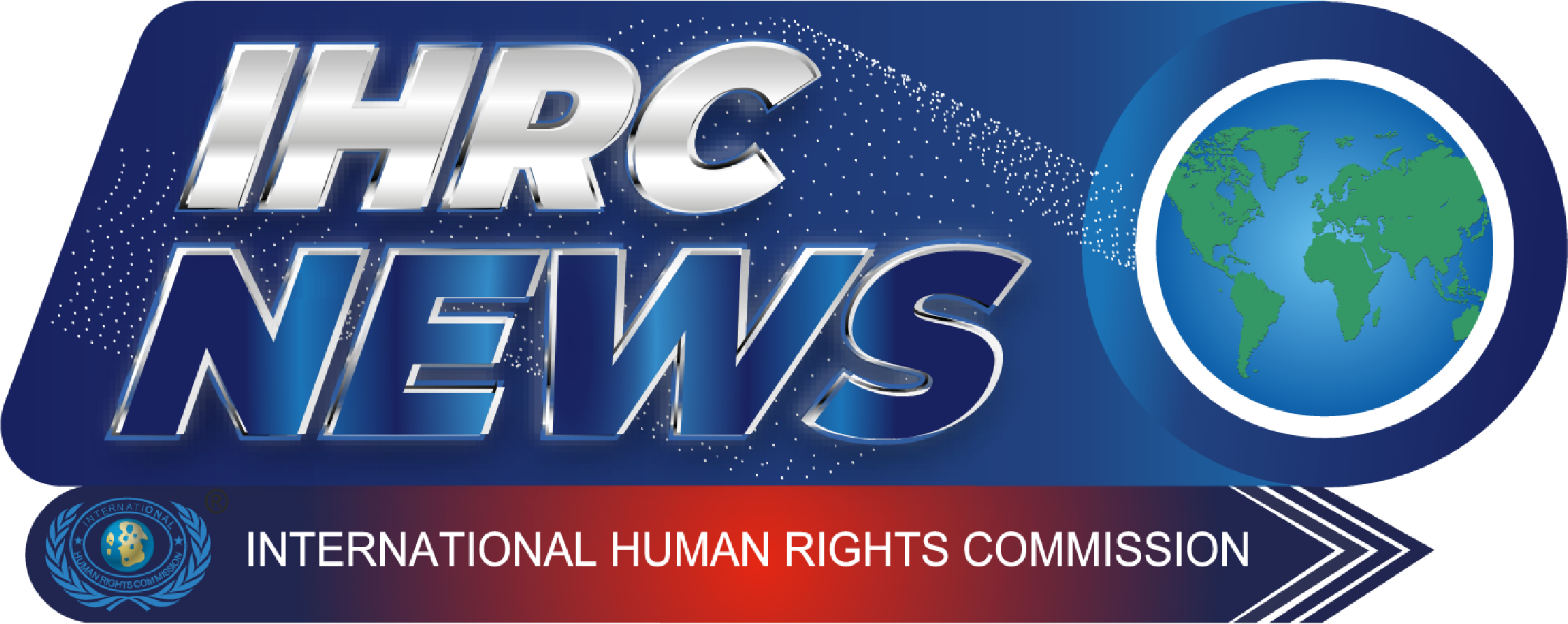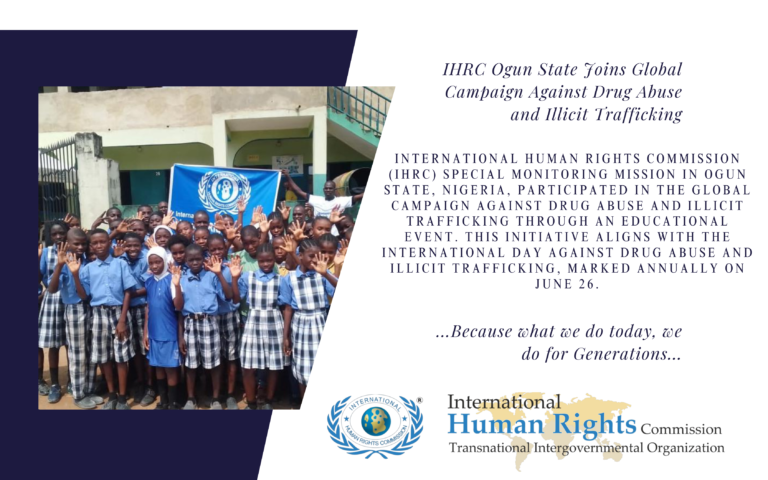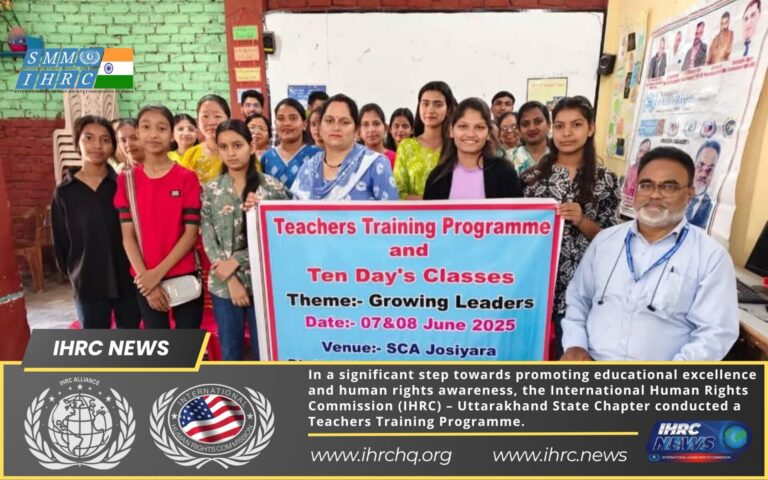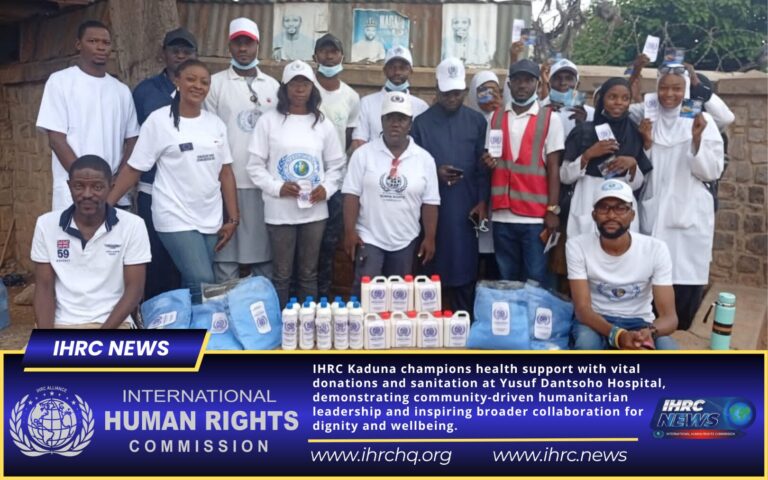IHRC HDM Duru Hezekiah’s Keynote Message on International Day of Zero Tolerance for Female Genital Mutilation 2024
In 2012, the UN General Assembly designated February 6th as the International Day of Zero Tolerance for Female Genital Mutilation (FGM), to amplify and direct the efforts on the elimination of this practice.
As part of affirmative actions to end this devastating and psychological endemic that is as old as society itself, the International Human Rights Commission-IHRC in Nigeria calls for the need to eradicate FGM in Nigeria and educate the general public at all levels with emphasis on the dangers and undesirability of FGM.
According to the World Health Organization (WHO), Female genital mutilation (FGM) is defined as all procedures that involve partial or total removal of the external female genitalia and/or injury to the female genital organs, whether for cultural or any other non-therapeutic reasons.
It is argued that FGM is widely practiced in Nigeria, and with its large population, Nigeria has the highest absolute number of cases of FGM in the world, accounting for about one-quarter of the estimated 115–130 million circumcised women worldwide.
In commemoration of the 2024 International Day of Zero Tolerance for Female Genital Mitigation, we stand to shed light on this pressing issue that continues to plague our society – female genital mutilation.
FGM is recognized internationally as a violation of the human rights of girls and women. It reflects deep-rooted inequality between the sexes and is an extreme form of discrimination against girls and women. It is nearly always carried out on children and is a violation of children’s rights. The practice also violates a person’s rights to health, security, and physical integrity; the right to be free from torture and cruel, inhuman, or degrading treatment; and the right to life, in instances when the procedure results in death.
The consequences of FGM are far-reaching and devastating. Physically, it can lead to severe pain, infections, and complications during childbirth, and even death. Emotionally and psychologically, it leaves lasting scars, causing trauma, depression, and a sense of violation. Moreover, FGM perpetuates gender inequality, reinforcing harmful stereotypes and limiting the potential of girls and women.
FGM is a practice whose origin and significance are shrouded in secrecy, uncertainty, and confusion. Its origin is fraught with controversy either as an initiation ceremony of young girls into womanhood to ensure virginity and curb promiscuity, or to protect female modesty and chastity.
Others have argued the existence of FGM as a superstitious belief practiced for the preservation of chastity and purification, family honor, hygiene, esthetic reasons, protection of virginity and prevention of promiscuity, modification of sociosexual attitudes (countering failure of a woman to attain orgasm), increasing sexual pleasure of husband, enhancing fertility and increasing matrimonial opportunities, and so on.
To combat this menace, we must adopt a multi-faceted approach. Firstly, raising awareness is crucial. Education and advocacy campaigns can help dispel myths, challenge cultural norms, and promote dialogue within communities. By engaging with religious and community leaders, we can foster understanding and encourage them to take a stand against FGM.
Secondly, legal frameworks must be strengthened and enforced. Governments should enact comprehensive legislation that explicitly criminalizes FGM and provides protection for potential victims. Law enforcement agencies should be trained to identify and respond to cases of FGM effectively.
Additionally, support services should be established to provide medical, psychological, and legal assistance to survivors.
Thirdly, empowering women and girls is paramount. By promoting gender equality, providing access to education, and creating economic opportunities, we can challenge the underlying factors that perpetuate FGM. Empowered women are more likely to reject harmful practices and become agents of change within their communities.
Lastly, international cooperation is essential. Governments, non-governmental organizations, and civil society must work together to share best practices, exchange information, and provide financial support to initiatives aimed at eradicating FGM. By joining forces, we can amplify our impact and accelerate progress towards a world free from this menace.
In conclusion, female genital mutilation is a grave violation of human rights and a menace that must be eradicated. Through awareness, legal action, empowerment, and international collaboration, we can put an end to this harmful practice. Let us stand together, united in our commitment to protect the rights and well-being of girls and women worldwide.

_____________________
H.E. Ambassador Dr. Duru HezekiahAmbassador-at-Large/Head of Diplomatic Mission, IHRC Nigeria.







